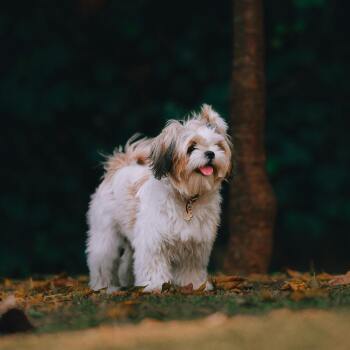Shih Tzu

If you're lucky enough to call a Shih Tzu your best friend, you already know just how much charm and sass can fit into one tiny dog. With their flowing coat, soulful eyes, and loyal nature, the Shih Tzu is more than just a lapdog—they're a full-time companion and part-time entertainer.
Why We Love Them
Shih Tzus are the definition of “companion dog.” They were bred for royalty, and it shows in the way they love to be pampered—and to return the favor. These dogs are affectionate, alert, and full of personality. They’re excellent with other pets, enjoy meeting new people, and are just as happy curled up in your lap as they are prancing around the living room.
Their exercise needs are refreshingly manageable. A daily walk and a bit of indoor play are all it takes to keep them content, making them a great match for apartment dwellers or folks with a slower pace of life.
Not Without Their Quirks
Shih Tzus might be small, but they have big opinions. Without proper socialization, they can become a bit barky or stubborn. Housetraining often takes some extra patience, and their tiny bodies can be prone to injury—so gentle handling is a must. They’re also heat-sensitive and need a cool, comfortable environment to thrive.
Royal Roots
With a name that means “lion dog” in Mandarin, the Shih Tzu has an imperial lineage. They were bred as cherished palace pets in ancient China, where they lived lavish lives as lap warmers for royalty. Their lineage traces back to the Lhasa Apso and Pekingese, and they were introduced to the U.S. in the mid-20th century—quickly becoming one of the most beloved toy breeds.
Lifespan & Health
Shih Tzus typically live 13–15 years and are generally healthy dogs. That said, like all breeds, they’re prone to certain hereditary conditions, especially related to their face shape, spine, and joints. Regular vet visits and a little extra TLC go a long way in keeping your Shih Tzu happy and healthy.
Genetic Health Concerns in Shih Tzus
- Liver Trouble: Portosystemic Shunt (PSS)— In PSS, the liver doesn’t receive normal blood flow, making it harder to clear toxins. Signs include stunted growth, confusion, or seizures. Liver function tests before anesthesia can help catch this early. Treatment may include a specialized diet, medication, or even surgery.
- Joint & Knee Concerns— Patellar luxation (slipping kneecaps) and hip dysplasia are common in Shih Tzus. These issues can cause hopping, limping, or difficulty rising. Managing weight and catching problems early through X-rays can greatly reduce discomfort. Some dogs may eventually need surgery to correct the issue.
- IVDD: Spinal Slips— Shih Tzus are more likely to develop Intervertebral Disc Disease, which can cause severe back pain or even paralysis. If your dog is suddenly wobbly or reluctant to move, it's time to see a vet—fast. Ramps and avoiding jumping can help prevent flare-ups.
- Eye Conditions: Keep a Close Watch— Big, beautiful eyes can come with big responsibilities. Shih Tzus are prone to cataracts, corneal ulcers, and conditions like entropion (where the eyelid rolls inward). Routine eye checks and keeping their face clean can help reduce risk, and many eye conditions are treatable with medication or surgery.
- Bladder & Kidney Stones— Shih Tzus are more prone to developing urinary stones, especially if they have hyperuricosuria. Signs include blood in the urine or straining to pee. It’s painful—and serious. Routine urinalysis and diet management can help prevent stone formation.
- Cushing’s Disease— Excess steroid hormone from the adrenal glands can cause symptoms like increased thirst, hair thinning, or a potbelly appearance. This condition is treatable with lifelong medication, so early detection is key.
- Allergies & Itchy Skin— Shih Tzus are known for skin allergies and frequent ear infections. If your dog is constantly licking their paws, rubbing their face, or scratching, they may need allergy relief. Treatment options include special shampoos, medications, and dietary adjustments.
- Breathing Troubles: Brachycephalic Syndrome— That adorable snub nose comes with risks. Shih Tzus often struggle with Brachycephalic Obstructive Airway Syndrome (BOAS), which can cause snoring, labored breathing, or fainting. Mild cases may be managed conservatively, but surgery may be recommended for more severe cases.
- Dental Issues— Due to their small mouths and flat faces, Shih Tzus often suffer from overcrowded or misaligned teeth. Dental cleanings, home care, and regular vet checkups are crucial to prevent tooth loss and gum disease.
- Bleeding Disorders— Inherited conditions like Von Willebrand’s Disease can increase bleeding risk during surgery or injury. Bloodwork before any procedure helps us avoid complications.
- Cancer Risk— As long-lived dogs, Shih Tzus are more likely to develop cancers in their senior years. Lumps or sudden changes in behavior warrant a quick vet visit. Many forms of cancer can be managed successfully when caught early.
Ready to Learn More? We’re Here to Help!


